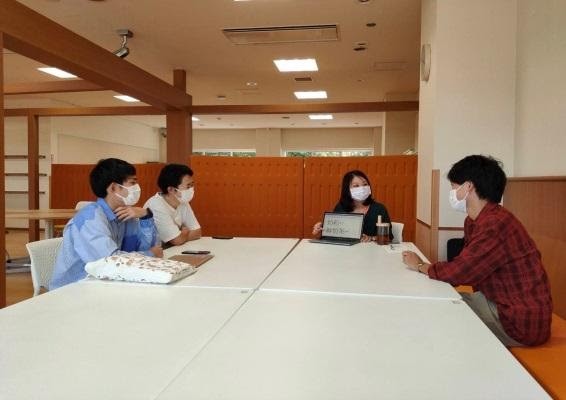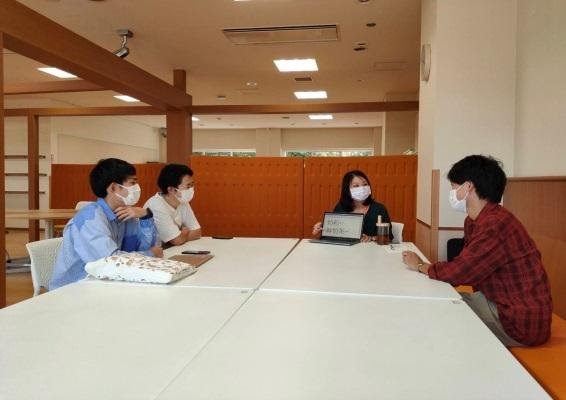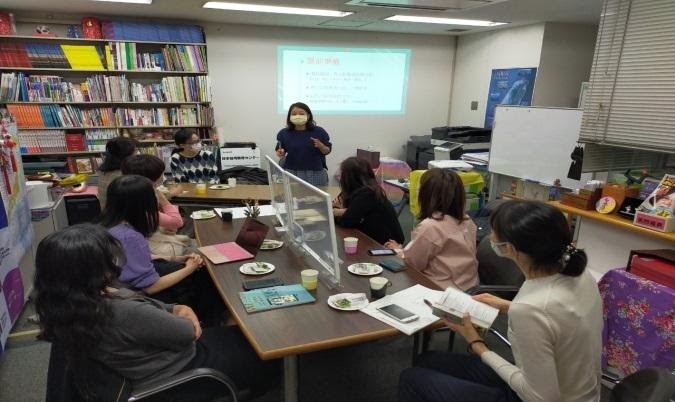Chinese Language Teachers in Japan Share Teaching Experience at Chinese Language Teaching Workshop

In order to support Chinese language teaching in Japan, the Education Division of the Taipei Economic and Cultural Representative Office (TECRO) in Japan held a workshop for Chinese language teachers at the Taiwan Education Center in Japan on October 25, 2021. The participants included Ms. Huang Hui-Chung (黃慧中), a Chinese language teacher at Takushoku University (拓殖大學), Mr. Masaru Hasegawa (長谷川有望), the director of Shinjuku Gyoen College, Ms. Kuo Yen-na (郭艷娜), the director of the Taiwan Education Center in Japan, and other Chinese language teachers in Japan.
The Ministry of Education (MOE) subsidizes the selection of outstanding Chinese language teachers to teach abroad, to enhance the quality of Chinese language teaching and people’s understanding of Taiwanese culture. Ms. Huang Hui-Chung, who has a Ministry of Education certificate to teach Chinese as a foreign language, is such a teacher. She started teaching at Takushoku University in April this year and she was one of the presenters for the workshop.
Ms. Huang chose Pre-class Preparation and Classroom Teaching Methods as the topic. She advised teachers to anticipate the questions that their students might ask, or the vocabulary that their students will find difficult. The teachers can then prepare for their class and use Stephen Krashen’s i+1 language learning method. This presents slightly more advanced new vocabulary or phrases to the students’ existing knowledge base.
During the exchange time session, the Chinese teachers raised problems that they often encountered teaching in Japan. Ms. Huang shared her similar experiences. She explained that the classes at Japanese universities are not the same as those at the Chinese Language Center in Taiwan, and the students have different motivations for learning. The foreign students in Taiwan have an urgent need for Chinese they can use their daily life because they live in Taiwan. And for the same reason, it’s easy for classroom discussions of language or culture to resonate with their daily experiences.
The students in Japanese universities are also interested in Chinese language and culture, but not every student has experienced going abroad; and those who have gone abroad usually have very little knowledge of Taiwan. Japan has a very collectivist culture, and most Japanese students are more introverted and conservative in class than other foreign Mandarin learners. For these reasons, teachers need to spend more effort to ensure that their students understand the new language items being presented and help them feel more confident about communicating with their teachers, and not feel shy about answering in Chinese.
Ms. Huang also described how she set up a “Chinese Salon” at Takushoku University. This gives her students an opportunity to take part in group discussion. Several students who are very interested in Taiwan go to the salon every week and she found this interesting and heartwarming. She sometimes takes along some Taiwanese snacks sent by relatives and friends, to share with the students and talk about Taiwan’s food and culture.
The workshop ended with a lively discussion and exchange of ideas. The Chinese language teachers who took part indicated that they found the workshop very useful, and they will use many of the practical ideas that were shared to help their teaching.


